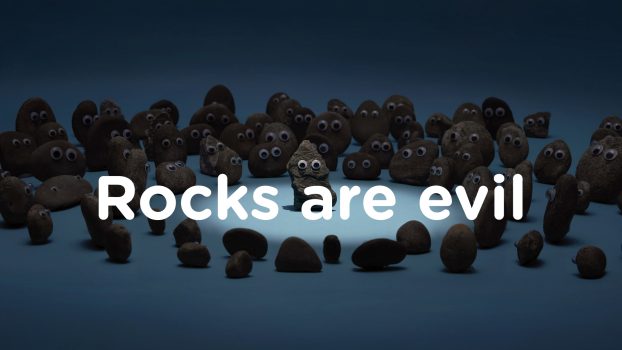Just as the social stratosphere is focusing on taking better care of themselves with an inside out approach to life – yoga, aromatherapy and new age body treatments come to mind – so too is the realm of skin care. And with people working ever-longer hours while letting the nightly sleep quotient go by the wayside, they need more help than ever to prevent a dull complexion.
Beauty from the inside out is becoming more of a concern, and as a result, the market for anti-aging skin care – traditionally a domain for older women – is skewing increasingly younger.
‘The segment itself is exploding in sales and attractiveness,’ says Mississauga, Ont.-based Mike Muyal, brand manager for Revlon brand Almay. Muyal adds that even women in their early 20s are more concerned than ever about so-called ‘photoaging’ from sun exposure. ‘The population as a whole is much more aware of the effects of sun exposure, environment, air and diet. Manufacturers as a whole are making a concerted effort to address those issues. We’re seeing a broadening of the typical skin-care consumer.’
The focus on aging now seems to be not so much age-targeted, as skin-age targeted. Says Susan Akkad, Clinique’s VP of global treatment marketing based in New York: ‘You can be 25 and have skin that looks like 50.’
With more research showing that environmental factors (sun, pollution, smoke, etc.) as well as physical and internal factors such as diet and mental health have an impact on skin condition, more brands are gearing their products towards anti-stress and rejuvenating formulas, whether through packaging, ingredients or skin-care technologies.
‘The aging process is accelerating,’ adds Akkad. ‘When we talk about stress, we talk about the outside things, but we also talk about mental stress. Skin can’t synthesize proteins as well and can’t repair itself as well.’
Kelly Frances, sales and marketing manager for Toronto-based Strategies International, says the trend first began with aromatherapeutic body washes and treatments from brands like Aveda in the late ’90s, but is now surfacing in skin care for the face.
‘It seems like a natural extension to that trend and the whole sensory experience from head to toe, creating a stress-free existence,’ says Frances. ‘We can always equate it to post-9/11 stress.’
Lancôme recently launched its Hydra Zen Nuit cream in October – a night-time companion to the day cream Hydra Zen and the first night cream in Lancôme’s moisturizer category. While not anti-aging products, Hydra Zen and Hydra Zen Nuit are soothing moisturizers for stressed, irritated skin – a condition that can afflict women young and old. As a result, the creams are targeted more by use than by demographic.
‘It’s really targeted to women who want to destress their skin,’ says Tara Cheng, Montreal-based product manager for Lancôme skin, who notes the increasing demands on women at work and at home.
Everything from the packaging to the scent and product properties of Hydra Zen Nuit, including the key ingredient Acticalm, evoke a calming quality. The cream itself, a soft tea rose pink, blends a plethora of soothing scents, from ylang ylang to citrus and vanilla, while the jar is a soft mauve colour, deemed ‘a very zen colour.’
‘Women are more demanding today,’ says Cheng. ‘They want a treatment with immediate, tangible results, and they don’t want a cream to do just one or two things. They want a treatment that can have preventative elements as well.’
Revlon’s Almay brand developed Kinetin skin-care that launched in August 2001. Kinetin is an age-defying line of nine products ranging from Skin Optimizing Cleanser to Anti-Wrinkle Booster Serum that incorporates the ingredient of its namesake – a plant-derived essence that was traditionally prescribed by dermatologists. An anti-oxidant, Kinetin stimulates a natural renewal process in the skin. Says Almay’s Mike Muyal of the natural element, ‘For the consumer, it has the effect of making them believe in the Almay proposition – that it’s non-irritating and good for your skin.’
Kinetin products are targeted to women 30-plus and promise to help improve skin firmness, increase smoothness and diminish the appearance of wrinkles in a matter of weeks, without the redness or peeling associated with retinoid products, in keeping with the brand’s messaging that it is ‘Hypo-Allergenic.’
While anti-aging products still typically target the older consumer, Muyal notes, ‘all of these products really work with facial skin aging, which is associated with exposure to UV light.’
Marketing of the product has included print advertising in English and French and targeted sampling to cosmeticians at drug stores and dermatologists. Muyal says Almay has opened more distribution channels for Kinetin because of dermatologists’ recommendations of the product – consumer demand has increased as a result.
At Clinique, a new night product range, Repairwear, seeks to restore energy or ‘vital fuel’ and repair damage to the skin. ‘The ability to replenish the skin’s store of energy really boosts overall performance [of skin],’ says Akkad. ‘It’s naturally going to appeal to those who are seeing signs of aging. [But] stress and environment really play out on your skin so differently, and you can have premature aging. We talk about it in terms of the skin’s need for repair.’
Repairwear launches in Canada at the end of December and Akkad says this is an ideal time to launch a beauty product since women are usually eager to pamper themselves after buying so much for others during the holidays.
Full marketing support, including print advertising in fashion and beauty books and intensive sampling of the product, will begin in January. Ads will feature Clinique’s trademark minimalist approach: the Repairwear product set against a faux-nighttime backdrop, complete with crescent-shaped moon.
Clinical research surrounding Repairwear which showed links between stress and skin condition inspired the brand’s global communications department to conduct a lifestyle survey of women 25 to 65 across the U.S. in October.
‘We’re trying to find a profile of the person who has the most aging going on,’ says New York-based Clinique spokesperson Chris Molinari. ‘We were convinced through prior research that how you live your life will drain energy from the skin.’ The survey asked 200 questions – everything from ‘Are you in love?’ to ‘do you make enough money?’ to find women’s daily stressors. Researchers then took an in-person measure of each woman’s skin. Their hypothesis? ‘Stress ages skin,’ says Molinari.
Results of the survey will be available in early December and Molinari says Clinique plans to use the findings in an in-store and online outreach capacity to educate consumers about their skin. The earliest these informational marketing elements would be available is next spring, says Molinari. ‘We hope it can educate women on skin care and what they need to do,’ she says. ‘Based on how they live their lives, we’re going to be able to say, ‘This is your skin care profile.”
Skin-care profiling has long been a part of Clinique’s marketing strategy – women have been able to find out their basic skin type, whether oily, dry or combination, and appropriate skin care products by answering questions at Clinique counters in department stores. But Molinari says the new research would take the profiling element a step further. ‘We’re taking it to the next level of what this brand is built on.’
Frances predicts the trend for rejuvenating and destressing skin-care products will continue to expand over the next couple of years. ‘It will probably expand into men’s skin care,’ she notes. ‘What works for women will work for men too.’























